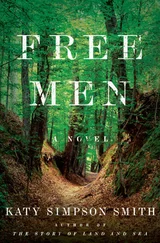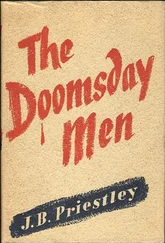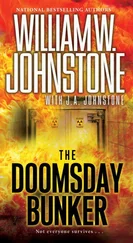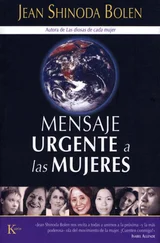Pierre showed Moffett a sealed glass tube ‘not much larger than a thick match’ which was partly covered by lead and contained a white powder. He explained that the radium in the tube was very radioactive: ‘Lead stops the harmful rays, that would otherwise make trouble.’ He pulled up his sleeve to reveal a ‘forearm scarred and reddened from fresh-healed sores’, caused by the radioactive element. Pierre explained how Henri Becquerel had travelled to London carrying in his waistcoat pocket a small tube of radium for a lecture. About a fortnight later ‘the professor observed that the skin under his pocket was beginning to redden and fall away, and finally a deep and painful sore formed there and remained for weeks before healing’. 63
Would Monsieur Curie say therefore that radium was ‘an element of destruction’, asked the reporter.
‘Undoubtedly it has a power of destruction,’ replied Pierre, ‘but that power may be tempered or controlled.’ 64
Cleveland Moffett noted that the physicist’s hands ‘were much peeled, and very sore from too much contact with radium’. Pierre told him that for several days he had been unable to dress himself. 65
‘Was it true,’ asked Moffett, adding with a dramatic emphasis, ‘ could it be true, that this strange substance gives forth heat and light ceaselessly and is really an inexhaustible source of energy?’
Pierre repeated the extraordinary details of radium’s innate heat. He added: ‘a given quantity of radium will melt its own weight of ice every hour’.
‘For ever?’ asked the journalist.
The cautious scientist hesitated. ‘So far as we know – for ever.’ 66
Then the dignified physicist led Moffett into a darkened room where the reporter from the Strand saw with his own eyes – just as Rutherford had a few months before – the ‘clear glow’ of radium in the tube. The light it gave off was, noted the amazed writer, bright enough to read a page by.
‘Then radium may be the light of the future?’ he asked. 67
Pierre shook his head. Patiently he explained, as he had done many times before to journalists, that ‘we should pay rather dearly for such a light’. People exposed to large quantities of radium would suffer paralysis, blindness and various nervous disorders. And then there was the cost. ‘Radium is worth about three thousand times its weight in pure gold,’ said Pierre. In 1904 a kilogram cost £400,000. There were perhaps just four grams in the whole world: ‘you could heap it all in a tablespoon’, he said. 68
Cleveland Moffett listened as Pierre told him about his recent journey to London, where he had delivered a lecture on radium. There he had met Crookes, who had shown him a ‘curious little instrument’ he had just invented. The English chemist called it a spinthariscope, from the Greek word for scintillation, or bright spark. 69Sir William explained that he had taken the word from Homer’s Hymn to Apollo . There it describes the radiance of the ancient god Apollo, often associated with the sun:
Here from the ship leaped the far-darting Apollo,
Like a star at midday, while from him flitted scintillations of fire,
And the brilliancy reached to heaven. 70
In this way a 2,500-year-old description of a Greek god became the name of a device that revealed the wonders of radium to thousands of ordinary people in the twentieth century.
The spinthariscope consisted of a fluorescent screen, a shiny brass magnifying eyepiece and a minute fragment of radium – too small to be seen with the naked eye, but enough to last for 30,000 years according to some estimates. 71Looking through the lens in a darkened room revealed a sparkling display, ‘scintillations of fire’ as the classically trained Sir William would have said. Soon advertisements for these simple devices appeared in all the newspapers.
Neurologist Oliver Sacks, author of Awakenings , recalls that the spinthariscope was a fashionable scientific toy in the Edwardian period, selling for a few shillings. When he was a boy, his Uncle Abe showed him one. Sacks ‘found the spectacle enchanting, magical, like looking at an endless display of meteors or shooting stars’. 72For Pierre Curie, the ‘vision’ he saw through the spinthariscope was ‘one of the most beautiful and impressive he had ever witnessed; it was as if he had been allowed to assist at the birth of a universe – or at the death of a molecule’. 73
While in Paris, Moffett also met Dr Jean Danysz, a biologist from the Institut Pasteur who had been doing tests with radium on animals. ‘I have no doubt that a kilogramme of radium would be sufficient to destroy the population of Paris,’ Danysz said coolly:
Men and women would be killed just as easily as mice. They would feel nothing during their exposure to the radium, nor realize that they were in any danger. And weeks would pass after their exposure before anything would happen. Then gradually the skin would begin to peel off and their bodies would become one great sore. Then they would become blind. Then they would die from paralysis and congestion of the spinal cord. 74
Danysz was speaking forty years before Hiroshima and Nagasaki. Combine this view of the lethal radioactivity of radium with the explosive tube of Bulwer-Lytton’s fictional vril, which can be fired at cities hundreds of miles away, and you have a nuclear missile.
Dr Danysz added that, paradoxically, animals ‘thrive’ after a short exposure to radium. This real but temporary effect led to radium soon being marketed as a health tonic – ‘liquid sunshine’ as the labels claimed. But such radium tonics had lethal consequences for anyone who drank them regularly. The apparently beneficial effects are caused by the body over-producing red blood cells, a natural defence mechanism which makes the person feel briefly invigorated. One Pittsburgh industrialist drank a brand of radium water called ‘Radithor’ every day. He liked it so much he even sent crates of the tonic to his friends. But it slowly poisoned him, and he died painfully: the bones in his jaws were decaying and he was suffering from anaemia and a brain abscess. 75
Danysz and his colleagues at the Institut Pasteur had also found that radium slowed the development of moth larvae by a factor of three. ‘It was very much as if a young man of twenty-one should keep the appearance of twenty-one for 250 years!’ Danysz boasted to the journalist, with rather unscientific exaggeration. 76Not only was radium a potential energy source, but it might also be the elixir of eternal youth. There were precedents here too in alchemy. The mythical philosopher’s stone was not just about making gold, it was also capable of curing all human ailments. The quest to discover the secret of this miraculous power – the source of both wealth and health – has enthralled people ever since.
The fantastic claims being made for radium echoed another of the alchemists’ dreams. For radium promised humankind the ultimate power, the power of the gods: the Parisian biologists claimed to have used the ‘strange stimulation’ of radium ‘ to create life where there would have been no life’. 77One of the most famous alchemists was Paracelsus (1494–1541), who left a remarkable body of texts and teachings. A true Renaissance man, he rejected book-learning as the route to knowledge and instead taught his students to trust the evidence of their own senses: ‘He who wishes to explore Nature must tread her books with his feet.’ 78A firm believer in using chemistry to both diagnose and treat disease, Paracelsus has even been praised by the Prince of Wales in 1982 as an early practitioner of holistic medicine. 79But among his more outlandish boasts was that with alchemy he could create life itself.
Читать дальше












